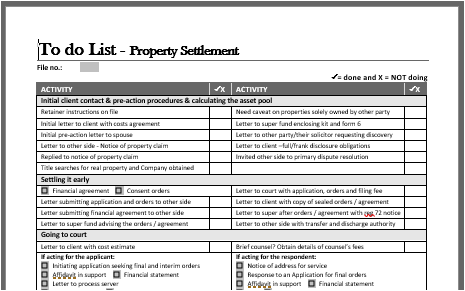A new financial agreement was published today in order to take into account the decision in Piper and Mueller. It covers both the requirements of during a de facto relationship under Part VIIIAB (s90UC) and the subsequent marriage under Part VIIIA (s90B). There is an informative commentary to go with it.
The new precedent is titled Combined financial agreement s90UC and s90B – During de facto relationship and subsequent marriage.

